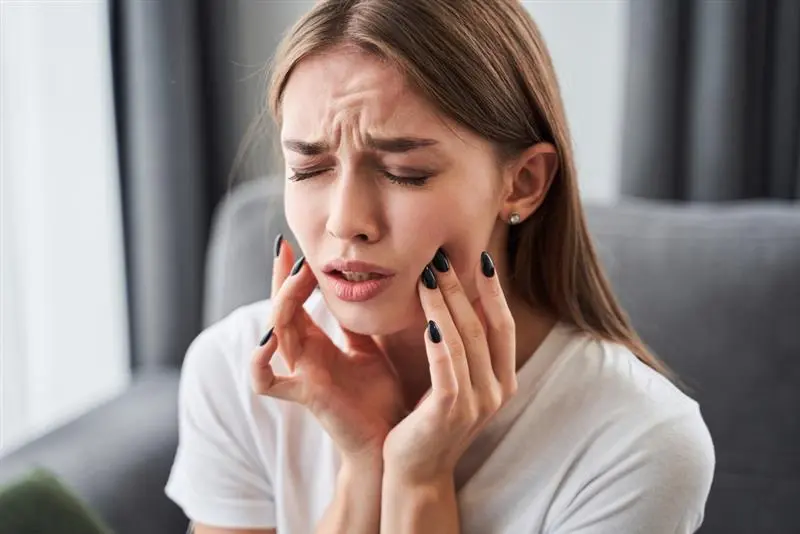There’s a certain boost in confidence that comes with a bright, white smile. But if you’ve recently had your teeth whitened and felt a sharp twinge from a cold drink, you might be asking yourself, “Why are my teeth suddenly so sensitive?
Tooth sensitivity after whitening is more common than you might think. The good news? It’s usually temporary, manageable, and preventable. At North Thornton Dental, we hold the view that knowing what to anticipate—and how to maintain your smile afterward—can greatly improve your teeth whitening journey.
Let’s explore why tooth sensitivity occurs after whitening, how long it typically lasts, and what you can do to relieve the discomfort—so you can enjoy your brighter smile with confidence.
What Is Tooth Sensitivity?
Tooth sensitivity is that sharp, sudden pain you feel when your teeth come into contact with something cold, hot, sweet, or acidic. It happens when the protective enamel on your teeth wears thin, exposing the softer inner layer called dentin. Dentin contains tiny tubules that connect directly to the nerves in your teeth. When these tubules are uncovered—particularly following a whitening procedure—it becomes simpler for temperature fluctuations or other stimuli to reach the nerves, resulting in discomfort.
Why Do Teeth Feel Sensitive After Whitening?
If you’re wondering, “Why does my tooth feel sensitive after whitening?”—you’re in good company. Here’s an explanation of what’s occurring.
Whitening treatments use safe but powerful ingredients like hydrogen peroxide or carbamide peroxide to break down deep stains. These bleaching agents penetrate the enamel to reach the discolored molecules in your dentin. While highly effective, this process can temporarily make your teeth more porous and reactive.
The result? Increased sensitivity—especially to cold—for a day or two after treatment. This is perfectly normal and should ease on its own.
Why Is My Tooth Sensitive to Cold?
One of the most common complaints we hear is: “Why is my tooth sensitive to cold drinks or air after whitening?” This happens because cold temperatures quickly travel through those newly exposed dentin tubules to the nerves inside your teeth.
Whitening can dry out your enamel slightly, making it even more responsive to cold. That’s why your morning smoothie or even breathing in chilly air might cause a quick, uncomfortable jolt.
What Causes Tooth Sensitivity After Whitening?
Tooth sensitivity can be the result of several underlying factors, which whitening treatments may temporarily amplify:
1. Pre-Existing Sensitivity: If your teeth were already sensitive, whitening can increase discomfort.
2. Thin or Worn Enamel: Weakened enamel leaves your teeth more vulnerable to sensations like heat, cold, or pressure.
3. High-Strength Whitening Products:While effective, stronger formulas can heighten sensitivity if not applied carefully.
4. Gum Recession: If your gums have pulled back, they expose parts of the tooth that don’t have enamel, making them highly sensitive to whitening agents.
5. Incorrect Application: Using at-home kits too frequently, or for too long, can irritate your enamel and gums.
How Long Does Sensitivity Last After Whitening?
In most cases, post-whitening sensitivity is short-lived. You might notice some discomfort for 24 to 72 hours after treatment. For some people—especially those who whiten regularly or have existing dental concerns—it can last a bit longer.
The good news? With the right care, it usually fades quickly and doesn’t leave any lasting damage.
How to Decrease Tooth Sensitivity After Whitening
If your teeth feel a little more sensitive after whitening, here are a few ways to ease the discomfort:
1. Switch to a Sensitivity Toothpaste: Look for toothpaste with potassium nitrate or stannous fluoride—both help calm nerve endings in your teeth.
2. Use a Fluoride Gel: Your dentist may recommend a fluoride gel or rinse to strengthen enamel and protect against future sensitivity.
3. Take a Break from Whitening: If you’re using an at-home kit, give your teeth a few extra days to recover between sessions.
4. Avoid Cold or Acidic Foods for a Few Days: Ice cream, soda, and citrus fruits can worsen sensitivity. Stick to mild-temperature, non-acidic foods for a few days post-treatment.
5. Brush Gently: Use a soft-bristled toothbrush and avoid over-brushing. Brushing too hard can wear down enamel further.
How to Avoid Tooth Sensitivity Before Whitening
If you’re planning to whiten your teeth soon, taking a few precautions can help you avoid discomfort altogether:
- Use a desensitizing toothpaste for 1–2 weeks before treatment. This gives your teeth a head start in building resistance to potential sensitivity.
- Make sure your teeth and gums are healthy. Arrange a dental examination to confirm you are free from cavities, gum recession, or other problems that whitening might exacerbate..
- Go slow. If you’re whitening at home, follow the instructions carefully and avoid overuse.
- Choose custom trays over generic strips. Custom trays from your dentist are less likely to irritate your gums or expose tooth roots.
Are Professional Whitening Treatments Less Likely to Cause Sensitivity?
Absolutely. In-office whitening is done under the care of a dental professional, using products that are strong but safe. Plus, we take extra steps to protect your gums and apply desensitizing agents after the procedure.
Over-the-counter kits don’t offer this level of personalization and control. That’s why they’re more likely to lead to sensitivity—especially if not used properly.
When Should You Be Concerned About Tooth Sensitivity?
While some discomfort after whitening is normal, it’s a good idea to reach out to your dentist if:
- Your sensitivity lasts more than a week
- You feel sharp pain even when you’re not eating or drinking
- There’s visible damage, swelling, or discoloration
These could be signs of an underlying dental issue that needs attention, such as decay, a cracked tooth, or gum disease.
Caring for Your Smile After Whitening
Keeping your newly brightened smile healthy (and comfortable) doesn’t require much—just a few smart habits:
- Brush twice a day with a sensitivity-friendly toothpaste
- Floss gently to keep plaque away from the gumline
- Use alcohol-free mouthwash
- Avoid highly acidic or sugary foods
- Visit your dentist regularly for cleanings and checkups
Frequently Asked Questions (FAQs)
Q1: Why is my tooth sensitive after whitening but not before?
Whitening agents can temporarily dehydrate the enamel, exposing tiny pathways to the tooth’s nerve. This can trigger sensitivity even in people who haven’t experienced it before.
Q2: How long will the sensitivity last?
Most people experience sensitivity for 1–3 days. It usually resolves without any special treatment.
Q3: Why is my tooth sensitive to cold water after whitening?
Whitening creates small pathways in the dentin layer of your tooth, increasing its sensitivity to temperature fluctuations, particularly to cold.
Q4: Can I prevent sensitivity before my next whitening session?
Sure! Use a desensitizing toothpaste. Avoid acidic foods. Talk to your dentist about fluoride or protective treatments.
Q5: Is it okay to keep whitening if my teeth are sensitive?
It’s best to pause and let your teeth recover. You may still be able to continue whitening, but with a lower concentration or less frequent application.
Final Thoughts: Whitening with Comfort and Confidence
Tooth sensitivity after whitening is common—but it doesn’t have to be a major concern. With the right preparation and follow-up care, you can enjoy a brighter smile without the sting. At North Thornton Dental, we provide gentle yet effective whitening solutions, tailoring treatments to meet your requirements, with options available for individuals with sensitive teeth.
If you’ve been avoiding whitening because of sensitivity, let’s talk. We are committed to assisting you at each stage on your journey to a bright, comfortable smile.
Ready to Brighten Your Smile?
Call us today or book your appointment online and discover whitening options designed to minimize sensitivity and maximize your confidence.



